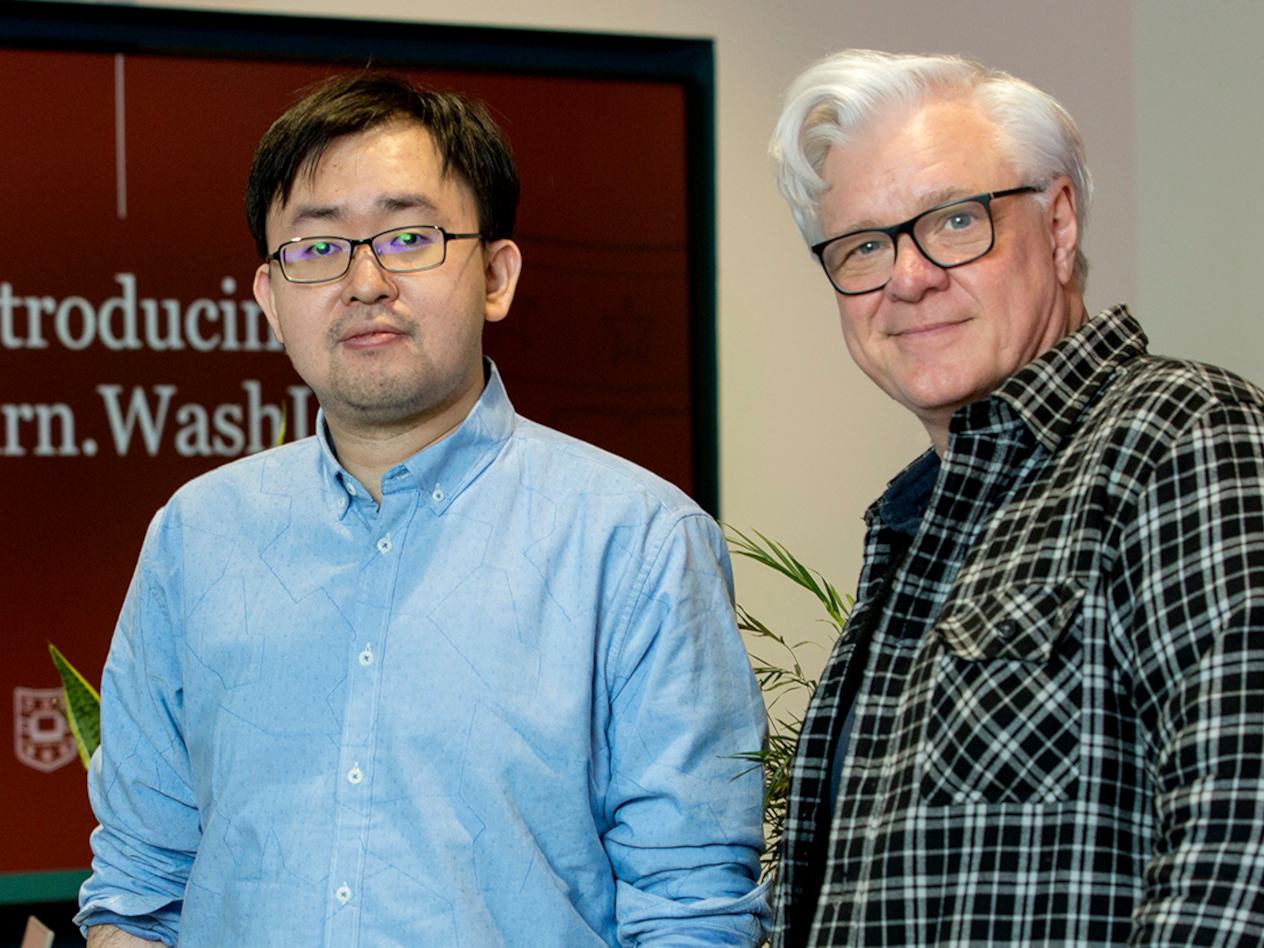New algorithm predicts and adjusts to human decision-making
- February 6, 2020
- By Jill Young Miller
- 2 minute read

Dennis Zhang created a human-focused algorithm to improve warehouse workers’ packing time, winning him the Olin Award for the second consecutive year.
“This was a stunning piece of research,” Dean Mark Taylor said. “A lot of the judges put ‘number one’ immediately.”
Zhang’s research focused on packing efficiency at the Chinese online retail giant Alibaba. He and his coauthors created an algorithm that, as it turns out, could save Alibaba more than $2.6 million a year. The paper, “Predicting Human Discretion to Adjust Algorithmic Prescription: A Large-Scale Field Experiment in Warehouse Operations,” is under revision in Management Science.
The Olin Award, which includes business school recognition and a $10,000 prize, is intended to promote scholarly research that has timely, practical applications for complex management problems.
Conventional bin-packing algorithms prescribe which items to pack in which sequence in which box. They focus on the best use of a box’s volume. But here’s the problem: Those algorithms tend to overlook how humans might deviate from instructions and create delays. Workers might not organize items as the algorithm prescribes if, for instance, packing a box is complex because it includes numerous items or items with unusual shapes.
It takes the algorithm and the executors of the algorithm—the people delivering the outcomes.
Dennis Zhang, assistant professor of operations and manufacturing management
“I call this particular characteristic artificial intelligence and human collaboration," he said. "Such particular characteristics allow us to design better algorithms.”
Here a some takeaways from the research:
- The new algorithm predicts which orders will confuse workers and adjusts the box size to a larger one.
- The cost of box material may increase, but more savings come from fewer packing delays.
- AI and robotics can improve human work by providing more support for the decisions people make while working.
Last year, Zhang and Jake Feldman, assistant professor of operations and manufacturing management, received the award. They used data from Alibaba to test the benefits of—and recommend a solution for—presenting buyers the optimum variety of products available for purchase with individual online retail stores.
In this year’s winning research, the idea is not to strive for autonomous automation, the authors wrote. “We believe that AI and robotics can improve human work by providing more decision support while always empowering human judgment, oversight and discretion.”
Zhang presented his research virtually to members of the Olin community and guests on June 25.
Coauthors of the paper are Jiankun Sun of Imperial College Business School, Haoyuan Hu of the Alibaba Group and Jan A. Van Mieghem of Northwestern University.
Olin Award 2020—Dennis Zhang
The 2020 Olin Award is presented to Dennis Zhang, assistant professor of operations and manufacturing management, for his paper.
Media inquiries
For assistance with media inquiries and to find faculty experts, please contact Washington University Marketing & Communications.
Monday–Friday, 8:30 to 5 p.m.
Sara Savat
Senior News Director, Business and Social Sciences

